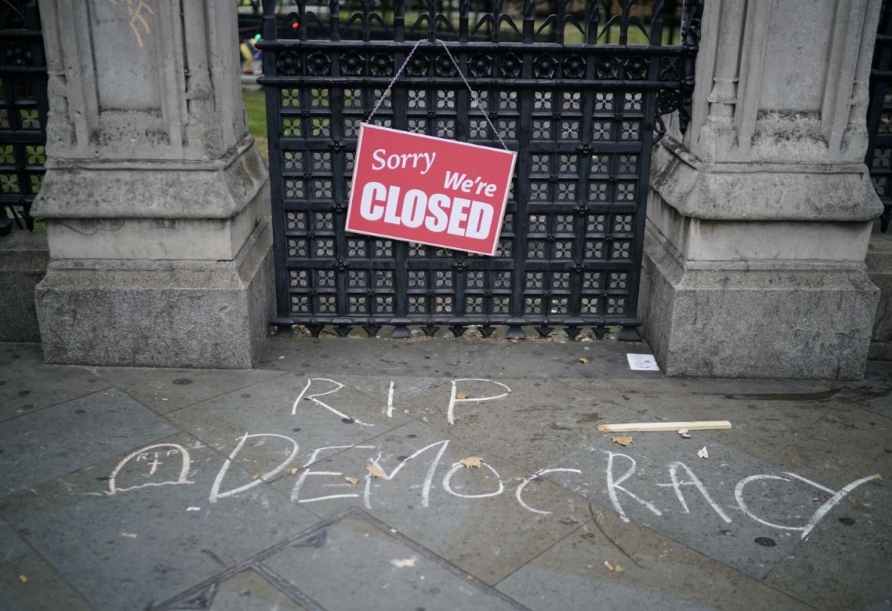'Prorogation': Britain's populist coup
Proroguing Westminster is a transparent manoeuvre by Boris Johnson to set up a ‘people versus Parliament’ election, even with the UK on course to crash out of the EU.
https://www.socialeurope.eu/prorogation-britains-populist-coup

Whether one calls it a ‘constitutional outrage’, an ‘abuse of power’ or an ‘affront to democracy’, whether one focuses on its formal characteristics or on its institutional consequences, the British prime minister’s decision to prorogue Parliament, against its will, constitutes a political coup in both senses of the term. It is a ‘do-or-die’ move (to borrow Boris Johnson’s hyperbole) and it is a step outside the margins of democratic legitimacy.
The line between constitutional encroachment and unconstitutional power grab has always been thin in times of accepted dictatorship (China), elected dictatorship (Venezuela), illiberal democracy (Hungary, Poland, Czech Republic) and elected authoritarians (Russia, Turkey, Philippines), as with Donald Trump and ‘Brexit’. Johnson has just elided the two.
The United Kingdom does not need to have a written constitution to be bound by constitutional principles and participate in the worldwide ‘constitutional acquis’—the rule of law and the interpretation of such rule always in favour of, never against, democracy. In fact, despite its unwritten character and arcane proceedings, the British constitution has inspired and influenced many national practices through the solidity and continuity of its democratic and parliamentary tradition and through the pre-eminence of liberty in the public and the private sphere. Johnson’s initiative, supported by blatantly populist motives, has clearly broken with this trend.
‘Will of the people’
The most salient characteristic of populism is that it
subjugates legality to the ‘will of the people’—or it creates a new ‘legality’ to serve such an imaginary construct. Democracy, however, in its constitutional practice, puts legality first and enables only the courts—never politicians, elected or unelected—to judge or interpret it. Legality is always, especially in the British tradition, a dynamic notion: it is judged on a case-by-case basis, where circumstances matter. The democratic spirit matters even more.
In the case at hand, it is true that prorogation of the parliamentary session is not only permitted but usual and that it constitutes a government prerogative: the monarch is ‘asked’ to embrace the proposal and does so, because it cannot shape or influence any political decision. Prorogation is thus only normal, and legal, when there are no urgent, very important or outstanding parliamentary matters.
snip
